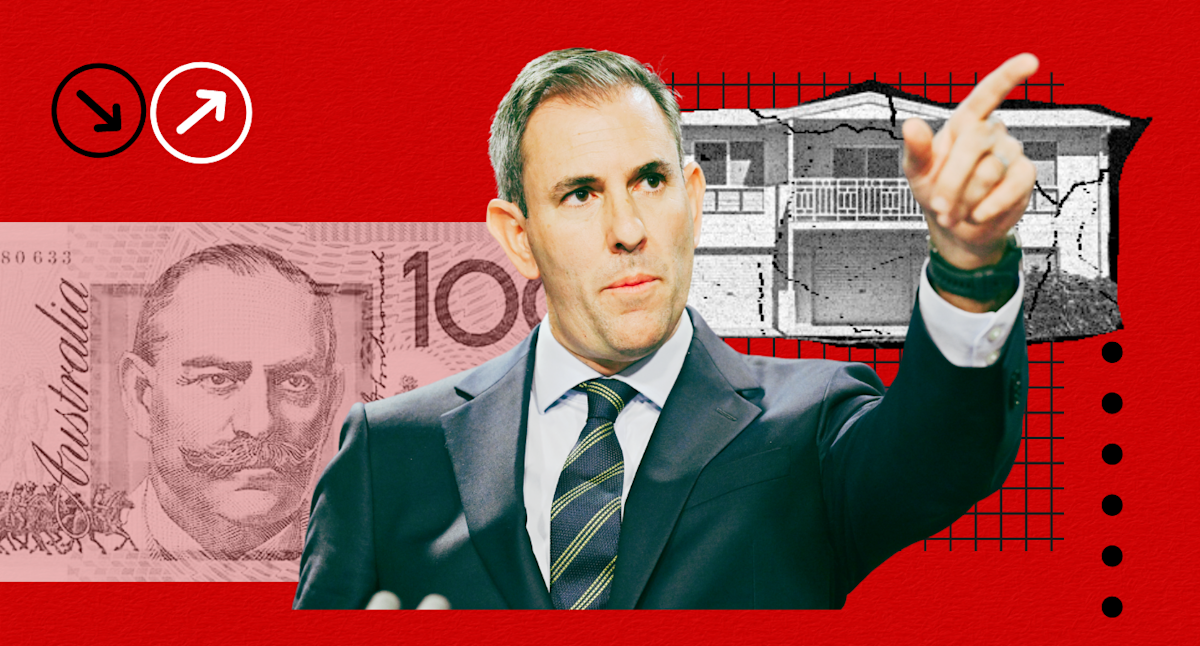Treasurer Jim Chalmers is posed to convene an economic roundtable to address Australia’s lagging productivity.
Dozens of CEOs and policy leaders from around Australia are preparing to meet on Friday, amid concerns that Treasurer Jim Chalmers‘ upcoming Economic Reform Roundtable will fail to adequately include representations from a sector that represents an area worth $896 billion a year.
The talks will be convened by the Australian Land Conservation Alliance (ALCA), the peak national body that manages and restores nature on private land, and focus on how the environment creates economic benefits.
Australia is heavily dependent on natural resources, including energy, mining, fishing, agriculture, and tourism, and participants will discuss safeguarding the economic growth of industries like these for future generations.
ALCA CEO Jody Gunn told Yahoo Finance clean water, fertile soil and pollination are essential for productive agricultural supply chains.
RELATED
While healthy ecosystems help protect the nation from natural disasters like flooding, storms, bushfires and erosion — threats that are creating a multibillion-dollar gap in the ability of the insurance industry to protect businesses and homes.
“Damage to nature is a financial risk,” she said.
“But in terms of nature contributing to the economy, we’re talking about thousands of land managers, rangers, landholders and farmers.
“The work they do benefits remote and regional economies.”
Other urban outdoor sectors, like construction, will also be impacted as the nation’s weather patterns are altered by climate change.
To keep its workers safe, the Construction, Forestry, Maritime, Mining and Energy Union (CFMEU) has a policy of stopping work when the temperature reaches 35 degrees, which keeps workers safe but also impacts productivity.
The Treasurer’s Roundtable beginning on Tuesday will focus on long-term economic reform, especially resilience, productivity and budget sustainability.
Other ministers in the Albanese Government have held separate talks with industries associated with their portfolios, but nature-focused groups who spoke to Yahoo Finance were unaware of any being held on the environment.
While Australian Climate and Biodiversity Foundation chair Ken Henry has been invited to the Roundtable, major environment advocacy groups argue their sector should be better represented alongside businesses, unions, politicians and regulators, noting around half the nation’s GDP ($896 billion) is estimated to have a moderate to very high dependence on nature.
Story Continues
The Australian Conservation Foundation made a submission to the Roundtable and will be included in a limited capacity, with its CEO Kelly O’Shanassy set to attend a half-day session on smarter regulation.
It’s during these talks that she suspects there will be discussions about changes to Australia’s threatened species protection laws, the Environment Protection and Biodiversity Conservation Act (EPBC).
Independent analysis dating back to the Morrison government has highlighted that nature and sectors like housing development, mining and agriculture are being negatively impacted by these quarter-century-old regulations, and the Albanese government has promised to reform them.
Natural disasters like drought are becoming more severe and frequent due to climate change, harming the productivity of farmers. Source: Getty · Getty Images
Speaking with Yahoo Finance, O’Shanassy said she is concerned about the lack of environment organisations invited to take part in the talks.
She believes there has long been an economic assumption that nature will always keep producing, but groups like hers know the “clear reality” is that nature is collapsing.
“The 19 critical ecosystems in Australia are collapsing, including the Great Barrier Reef which supports 64,000 jobs, the Murray-Darling Basin, which produces more than 30 per cent of Australia’s food,” she said.
“If you think that nature and the economy aren’t related, then we’re in a lot of trouble.
“We can have a thriving economy and thriving nature, or you can have neither. That’s the choice, and you need to build that into economic thinking.”
The alternate talks will feature close to 30 leaders from other environment organisations including Australian Wildlife Conservancy (AWC), WWF-Australia, Landcare Australia, Odonata Foundation,
Invasive Species Council and the Biodiversity Council. Together they will prepare a multi-page communique that will be sent to the Treasurer ahead of his Roundtable, with a focus on reforming the economy to safeguard nature-based productivity.
AWC CEO Tim Allard doesn’t think it’s entirely the fault of economists that they haven’t understood the crucial role nature plays in Australia’s prosperity.
Despite all the good work that environment groups have done, biodiversity across the nation is in decline.
“We’ve got to change how we do it,” he told Yahoo Finance.
“To keep doing the same thing and hoping for a different outcome is the definition of foolishness.
“We’ve got to find a way to change the dynamic, to change the language that we’re using, so those on the other side of the table start to see an opportunity to engage.”
There’s been a major change in world thinking on the environment since Donald Trump was elected as US President, promising to “drill baby drill” and expand fossil fuel extraction and deprioritise renewable energy.
In Australia, the world’s second-largest exporter of coal and liquefied natural gas, new carbon-polluting projects continue to be approved by the government.
Allard is of the opinion that in the current climate it will pay to talk about the environment, not from a social perspective, but in economic terms.
“Environmentalist groups tend to take a preachy approach and yell at people about what needs to be done,” he said.
“But we’ve got to get much smarter and start to talk in the language that the treasurer, bureaucrats, and decision-makers are going to understand.”
The offices of Treasurer Jim Chalmers and Environment Minister Murray Watt have been contacted for comment.
Love Australia’s weird and wonderful environment? 🐊🦘😳 Get our new newsletter showcasing the week’s best stories.

